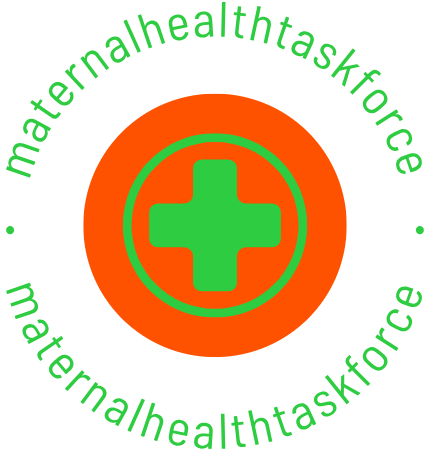As a new mom, navigating the world of maternal health can feel overwhelming. From physical changes to emotional adjustments, new mothers need access to reliable resources that help manage maternal health risks and support their overall well-being. In this article, we’ll explore some of the best maternal health resources that can provide guidance, support, and expert advice for new moms.
Online Platforms for Maternal Health
The internet offers a wealth of information on maternal health. Whether you need guidance on pregnancy, postpartum care, or tips for managing maternal health risks, several reputable platforms provide expert advice.
Mayo Clinic and WebMD
Both Mayo Clinic and WebMD are trusted online platforms that offer comprehensive articles on maternal health. These websites cover everything from prenatal care to postpartum recovery, allowing new moms to stay informed about the latest medical advice. The platforms also provide symptom checkers, which help mothers identify any potential maternal health risks and know when to seek medical help.

BabyCenter and What to Expect
For more community-driven content, BabyCenter and What to Expect are excellent resources for new moms. These websites feature articles, videos, and forums where moms can ask questions, share experiences, and learn from each other. The forums are especially helpful when managing maternal health risks, as you can hear from other moms who’ve dealt with similar issues. Additionally, the platforms offer apps to track your baby’s growth and your health.
Books on Maternal Health
Books are a valuable resource for new moms who want to dive deeper into topics related to pregnancy, childbirth, and postpartum health.
“What to Expect When You’re Expecting”
One of the most widely recommended books, “What to Expect When You’re Expecting” by Heidi Murkoff, is a must-read for new moms. It covers every stage of pregnancy, offering practical advice on everything from nutrition to maternal health risks. This book can serve as a trusted companion throughout your pregnancy journey.
“The Fourth Trimester”
“The Fourth Trimester” by Kimberly Ann Johnson is another essential read for postpartum care. It addresses the physical and emotional recovery process that often gets overlooked after childbirth. The book emphasizes how to navigate maternal health risks, balance self-care, and bond with your newborn, making it a crucial resource for new moms transitioning to motherhood.
Support Networks and Groups
Emotional support is just as important as physical health for new mothers. Joining a maternal health support group can provide comfort, reduce isolation, and offer advice on managing maternal health risks.
La Leche League International
For mothers focusing on breastfeeding, La Leche League International (LLLI) is one of the best resources. It offers support groups where moms can learn about breastfeeding techniques and troubleshoot common challenges. LLLI also provides guidance on maternal health risks associated with breastfeeding, such as infections or low milk supply, and how to address them.
Postpartum Support International (PSI)
For new moms experiencing postpartum depression or anxiety, Postpartum Support International (PSI) is a valuable resource. PSI offers online support groups, phone helplines, and local chapters that provide help to mothers struggling with mental health challenges. By addressing these maternal health risks early on, PSI helps mothers recover emotionally and focus on their well-being.
Mobile Apps for Maternal Health
In today’s digital age, mobile apps are a convenient way to track your health and manage maternal health risks. These apps provide everything from pregnancy tips to postpartum fitness routines, making them indispensable for new moms.
Ovia Health
The Ovia Health app is a comprehensive tool that covers pregnancy, postpartum, and baby tracking. It offers advice on nutrition, maternal health risks, and baby development, all personalized to your specific health data. The app also includes symptom trackers and connects you to health articles, making it easy to stay on top of your maternal health.
Peanut
For moms looking to connect with others, Peanut is a social networking app designed specifically for mothers. It allows you to chat with other moms, join topic-specific groups, and discuss common maternal health risks. Whether you’re worried about sleep patterns or postpartum recovery, Peanut offers a supportive environment where moms can share advice and experiences.
Healthcare Providers and Clinics
Ultimately, your healthcare provider is one of the best maternal health resources available. Regular checkups and open communication with your doctor are essential for managing maternal health risks.
Regular Prenatal and Postpartum Visits
One of the most important tips for new moms is to attend regular prenatal and postpartum appointments. These checkups help identify and manage any maternal health risks, such as high blood pressure, gestational diabetes, or postpartum depression. Don’t hesitate to bring up any concerns you have during these visits, as your doctor can offer personalized guidance to keep you and your baby healthy.
Lactation Consultants and Postpartum Doulas
For more specialized support, consider consulting a lactation consultant or hiring a postpartum doula. Lactation consultants provide expert breastfeeding advice, helping new moms avoid issues like mastitis or low milk supply. Postpartum doulas offer physical and emotional support during the postpartum period, reducing the risk of maternal health issues related to exhaustion or anxiety.
Conclusion
New moms have access to a wide range of resources that can help manage maternal health risks and ensure a smooth transition into motherhood. Whether through online platforms, support groups, or personalized care from healthcare providers, these resources provide valuable insights into maintaining maternal health. By taking advantage of these tools, new moms can feel empowered and supported throughout their pregnancy and postpartum journey. Remember, staying informed and connected is key to reducing maternal health risks and ensuring the best outcome for both mom and baby.











